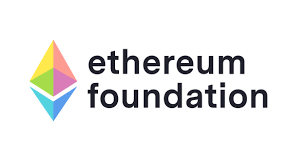Migrating Django Application to Neo4j.
Currently Our Backend operates a django-based application that relies on a traditional relational database for data storage and retrieval using django ORM.
We have to migrate our existing Django application to utilise Neo4j as the primary database. This transition involves several key hurdles that need to be addressed effectively to ensure a seamless and successful migration process.
1.Integration Complexity
Integrating Neo4j with Django requires additional libraries, configuration, and a thorough understanding of Neo4j concepts such as nodes, relationships, and Cypher queries.
2.Django Admin Impact
The native support for Neo4j data within Django's admin interface is limited. Customising the admin interface for Neo4j or exploring third-party admin tools adds complexity and requires careful consideration to maintain usability and functionality.
3:Data Model Shift
Moving from a relational data model to a graph-based model necessitates a fundamental shift in how data entities, relationships, and properties are structured and managed. This requires a detailed analysis of our current data model and a strategic approach to redesigning it for Neo4j.
4.Querying Paradigm Shift
Transitioning from SQL queries to Cypher queries introduces a new querying paradigm that requires developers to learn and adapt to Neo4j's query language. This learning curve may impact development velocity and efficiency initially.
5.Performance Considerations
While Neo4j offers strengths in handling connected data and complex queries, evaluating its performance against our Django specific requirements and workload is crucial. Ensuring that Neo4j can effectively meet performance expectations is essential for a successful migration.
6.Code Refactoring:
Adapting our Django application's codebase to work seamlessly with Neo4j involves potential refactoring of views, logic, and data handling processes. This requires careful planning and execution to maintain code quality and functionality throughout the migration process.The objective is to successfully migrate our Django application to Neo4j while overcoming the aforementioned challenges. The migration should result in a robust, scalable, and efficient system that leverages Neo4j's graph database capabilities to enhance data management and query performance.
Requirements:
Proven experience in database migration projects, preferably involving Django applications and Neo4j databases.Strong understanding of relational databases, SQL, and ORM concepts.Familiarity with graph databases, specifically Neo4j, and Cypher query language.Experience with Django frameworks, including Django-Neomodel or similar libraries.Proficiency in Python programming and ability to write clean, maintainable code.Knowledge of data modelling techniques for graph databases and experience in designing graph schemasFamiliarity with Docker or other containerization technologies for database deploymentUnderstanding of DevOps practices related to database management and version control systems like GitExcellent problem-solving skills and ability to troubleshoot database-related issues.Strong communication and collaboration skills to work effectively within a team environment.
Related Jobs

Security Engineer Ubuntu

Senior Software Engineer

Test Automation Engineer

Senior Android Engineer

Lead Software Engineer

Senior Frontend Engineer

Data Engineer

Production Engineer

Senior Back End Developer

Senior Frontend Engineer Platform

IT Engineer

Senior Software Engineer Cloud Images

Senior Product Designer

Hands On Engineering Manager

Full Stack Software Engineer

Senior Front End Developer

Customer Success Manager

Senior Software Engineer .NET Core

Front End TypeScript Developer

